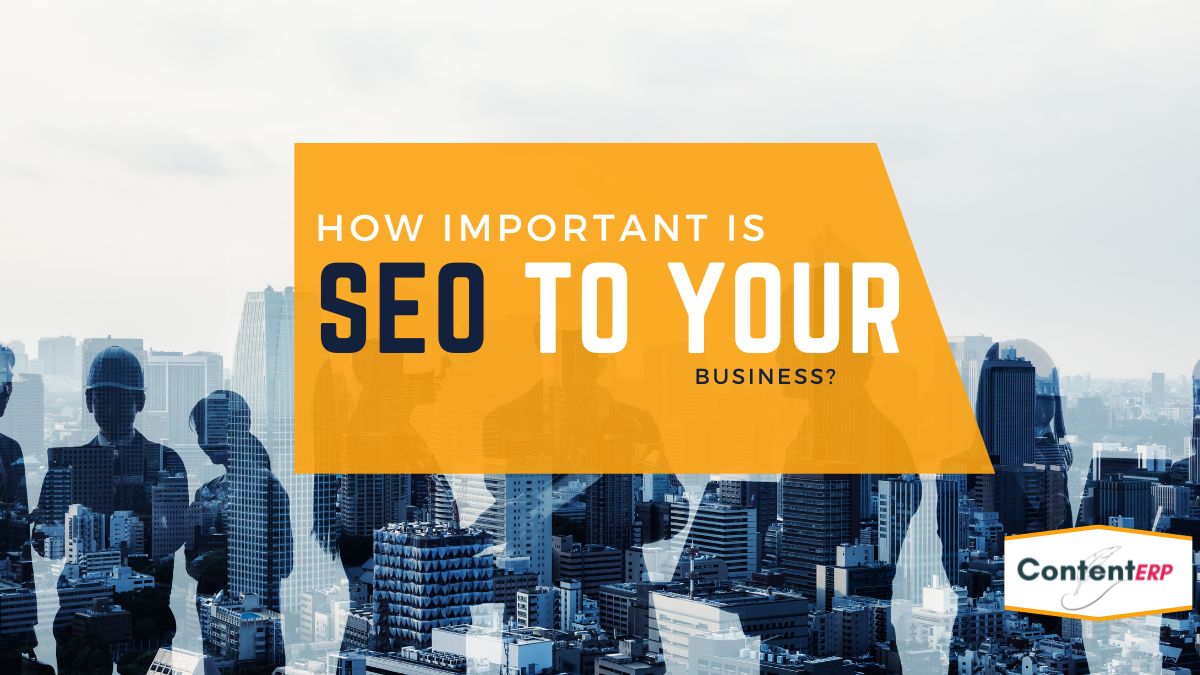How important is SEO to a business?
Undoubtedly, SEO is one of the most important aspects of any business, regardless of size or industry. After all, SEO helps businesses rank higher in search engine results pages, which in turn drives more traffic and leads.
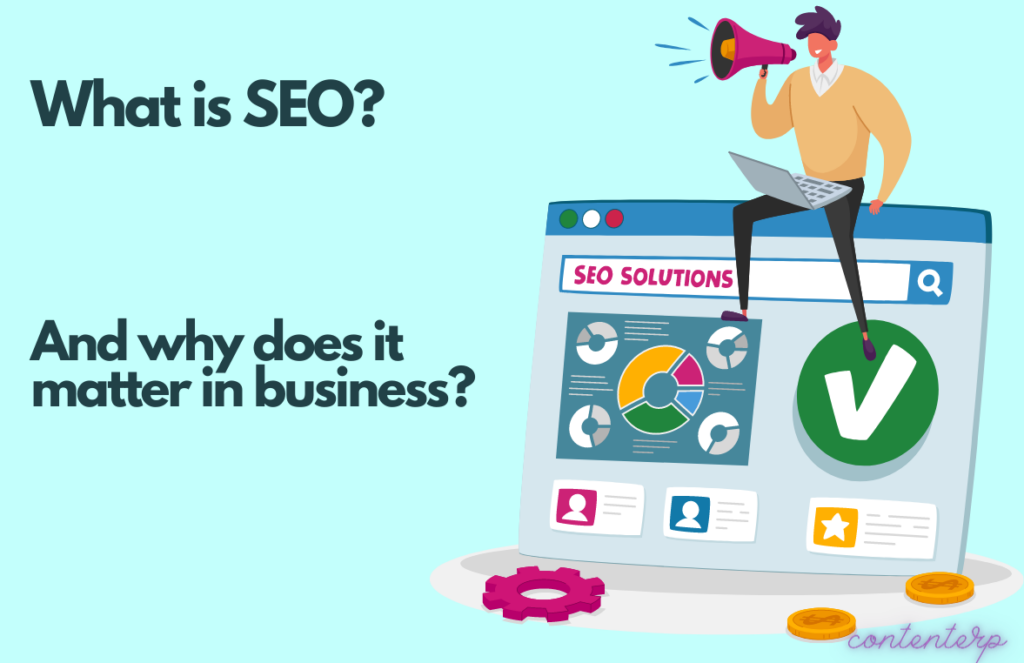
But what exactly is SEO, and why is it so important?
SEO stands for search engine optimization. It is the process of optimizing a website to rank higher on search engine results pages. This can be done through a number of techniques, including:
- Optimizing website content
- Improving site structure and navigation
- Building links.
SEO is one of the main factors that search engines use to determine where a website should rank on results pages. If a website is optimized for SEO, it is more likely to rank higher than one that is not optimized.
Several benefits come with ranking higher in search engines. First, it means that more people will see your website. This can lead to more traffic and more leads. Second, it can help to build trust and credibility with potential customers. And third, it can help you to stand out from your competitors.
So, as you can see, SEO is a vital part of any business. If you want to succeed online, you must ensure that your website is optimized for SEO.
Identify the type of SEO that works best for your business
The SEO industry has developed different types of SEO to make it easier to handle. Each type is responsible for its own set of SEO rules.
These subsets of SEO are not a different process. It’s just a way of breaking down a complicated process into several smaller processes that are easier to manage. The various SEO types are:
1. On-page SEO
On-Page SEO is the process of optimizing web pages’ title tags, internal links, HTML code, URL, images, and other on-page elements to improve rankings and user experience.
2. Off-page SEO
You can think of off-page SEO as everything you do outside of your website to help it rank higher in Google’s search results. It is all about promotion. Off-page SEO involves techniques you can use to promote your website on the Internet.
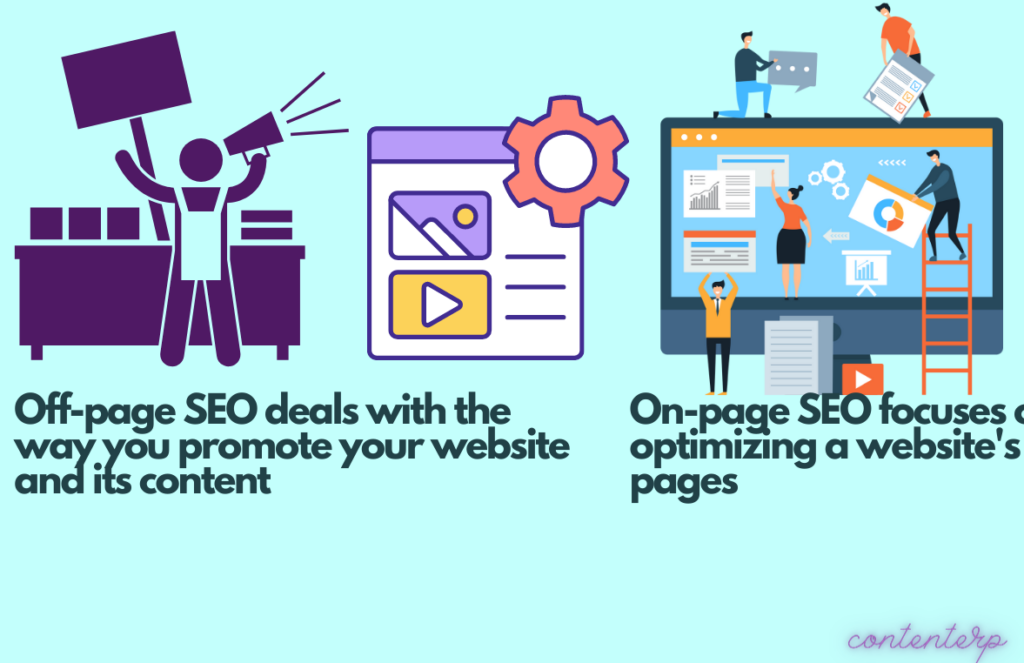
3. Content SEO
Content SEO is all about the content’s quality and how to improve it.
Because this is a very important SEO success factor, it is considered by many as one of the main SEO types. You can often find content guidelines under on-page SEO, which is also a correct approach.
4. Technical SEO
Technical SEO is the actions performed to help search engines crawl your website and enhance user experience (UX). As search engines and their algorithms become more complex, these requirements change, so this type of SEO is always evolving.
5. Local SEO
SEO that focuses on a specific geographical area. It’s all about increasing your online presence in your community and promoting your products or services to local customers.
6. Mobile SEO
Mobile SEO is a term used to describe optimizing a site for search engines while ensuring that it is properly viewable on devices like mobiles and tablets. More than 60% of Google searches are now performed on mobile devices. If a customer has a bad experience with a brand on their mobile phone, they may never return.
7. e-Commerce SEO
Ecommerce SEO is one of the best ways to get traffic by paid search, but the SEO costs are much less. It helps your online store website rank higher whenever someone searches for a product or service.
It’s important to have your website appear in the SERPs; else, you’ll lose critical access to potential and qualified e-commerce customers.
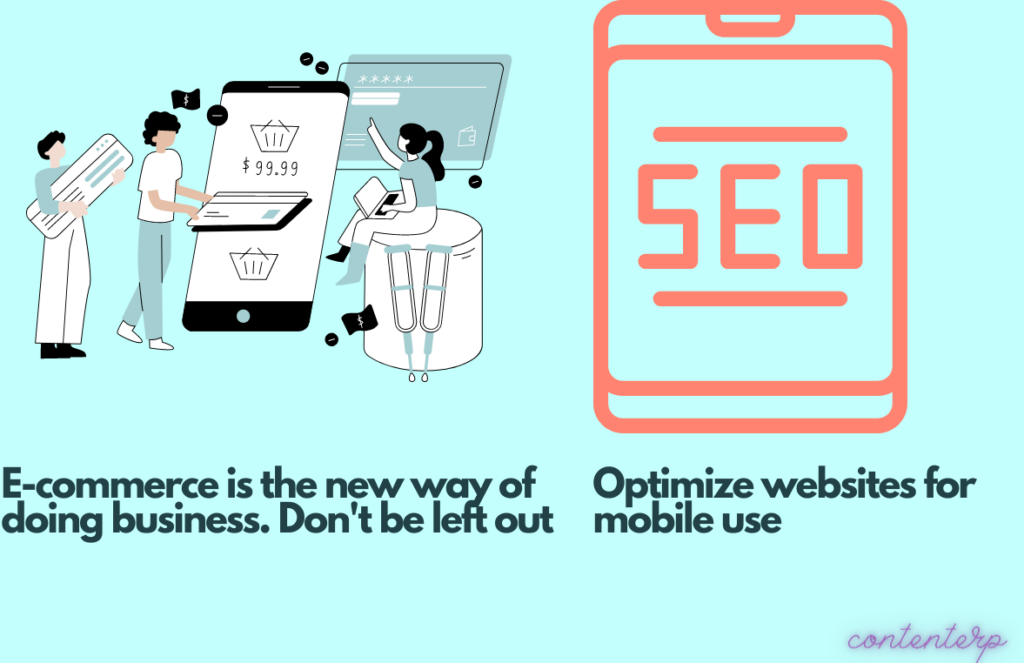
Importance of SEO for your business
Driving traffic to your site
SEO has many benefits to businesses, but one of the most important is that it drives high-quality organic traffic. This means that people searching for what you offer are more likely to find your website and convert into customers or clients. SEO is an essential part of any digital marketing strategy and can help you reach your target audience more effectively.
While many marketing campaigns focus on a defined target audience, SEO can help you attract anyone with intent at a given time, no matter what stage of the buying funnel they are in.
If you target keywords rather than demographics, as you might with PPC or social advertising, you can attract more prospects who may be interested in doing business with you.
It boosts your credibility and creates trust with users
A site that ranks high on search engine results pages is typically considered high-quality and trustworthy by search engines, which boosts your business’s credibility. Spend time improving and adding content to your site, increasing your site speed, and researching keywords to help your site rank even higher.
Although Pay Per Click advertisements appear above organic search results, around 67% of people prefer to click on organic results. From research conducted by Zero Limit Web.
We can infer from this that people do trust the algorithms a lot. They know that the advertisers are paying for top slots. However, they choose to visit pages the search engine has determined to be the best.
If you rank organically, it helps people trust you more, get more traffic, and reap SEO benefits.
SEO offers impressive ROI
SEO can be a very effective and impressive marketing tool for businesses of all sizes. Optimizing your website and content for search engines enables you to reach a wider audience and generate more leads and sales.
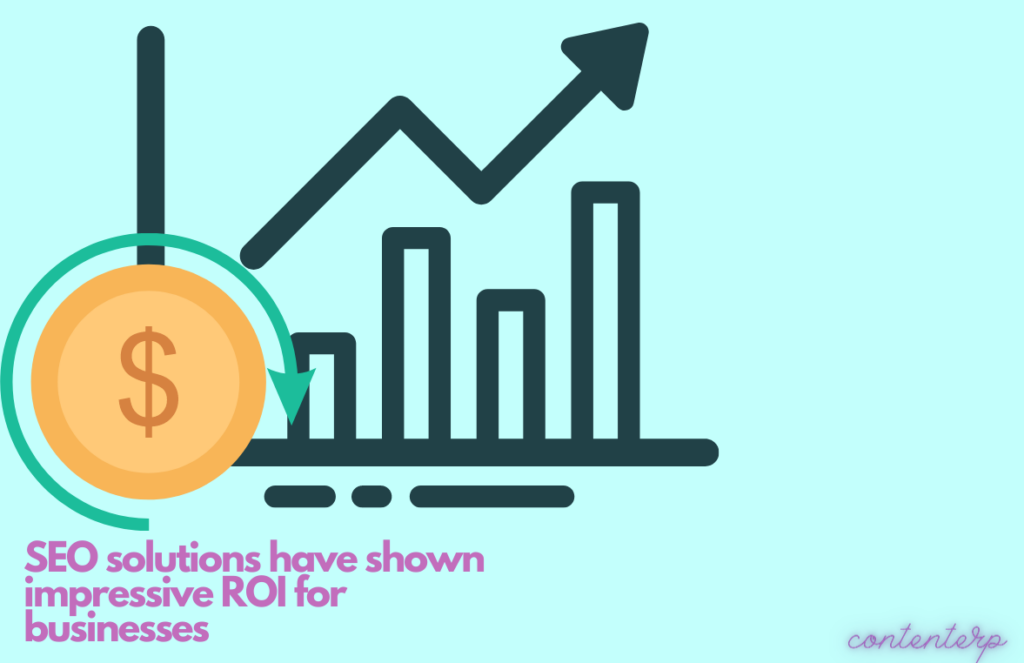
Additionally, SEO offers an impressive ROI, as it is a relatively low-cost marketing strategy with the potential to generate a high return. For these reasons, it is essential to consider SEO when developing your marketing plan.
Most inexpensive marketing strategy
One of the essential advantages of SEO is that you don’t have to pay to rank! The search engines’ algorithms are solely responsible for organic rankings.
This means that all you have to do is create web pages that search engines think are worthy of being directed to by their users.
Search engines crawl your site 24/7, promoting useful content and helping you find new customers organically. To make the most of your SEO efforts, allocate some of your time to reviewing the content for higher ranking sites within your niche, and aim to write content that’s better than theirs. Then, share your content on your social platforms.
Stay ahead of the competition
Your competitors are likely investing in SEO, which means you should too. Those who invest heavily in SEO often outrank the competition in search engine results and gain market share.
Google search gets over 90% of traffic, so you can’t afford not to be there, especially if your competitors are. Start by identifying your competitors, analyzing their strengths and weaknesses, and creating and managing your online reputation.
Then, ensure that your site loads fast and is mobile-friendly, make the best content possible, and focus on providing the best user experience.
Maximizes PPC campaigns
SEO and PPC are two of the most effective marketing strategies out there, and they work great together. PPC helps your site appear at the top of paid search results, while SEO organically does the same.
Having both results appear at the top of the search engine results page boosts your brand’s credibility and shows that you are not merely throwing money at advertising to be on top.
You can use SEO to maximize your PPC campaigns — for example; a high-ranking page may do even better if you use it as part of PPC advertising, especially if the keyword has a low cost-per-click.
Improves website usability
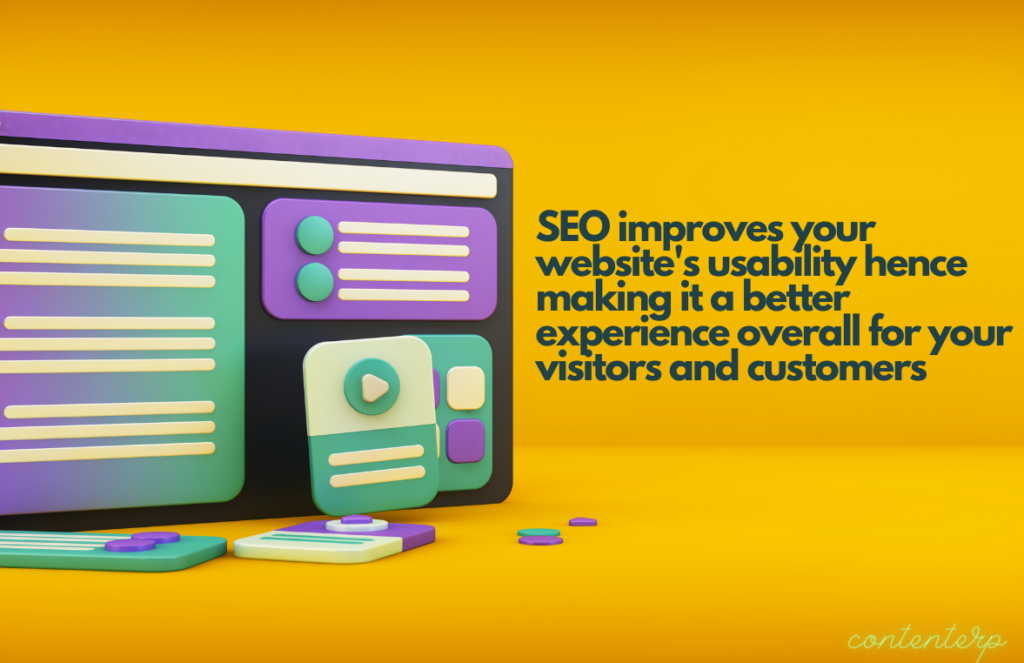
SEO is about more than just making your site attractive to search engines – although that is certainly a large part of it.
Good SEO can also improve the customer experience when they visit your website, making it more likely that they will stay on your site longer, purchase products, and come back in the future.
If you generate useful and high-quality content, make your site faster and more responsive, add backlinks and enhance every page, you will not only have an excellent website but one that is optimized for search engines as well. Factors that improve usability, such as a robust site structure and navigation, are also important factors in how search engines rank a site.
You can generate quality leads
The goal of SEO is to help you generate quality leads that are interested in your product or service. SEO does this by improving your visibility in search engine results pages (SERPs), which makes it more likely that people will click through to your website.
Leads that come from SEO are typically more qualified than other leads. They already show an interest in what you have to offer by searching for it. That means they’re more likely to convert into paying customers. This is why investing in SEO can be a great way to grow your business.
SEO results can be measured
Yes, SEO results can be measured. There are several ways to measure the results of your SEO efforts, including website traffic, leads, sales, and conversions. Each of these metrics can give you insight into how well your SEO performs.
Website traffic is a good measure of how much visibility your website is getting in the search engines. If your SEO is working, you should see an increase in website traffic over time.
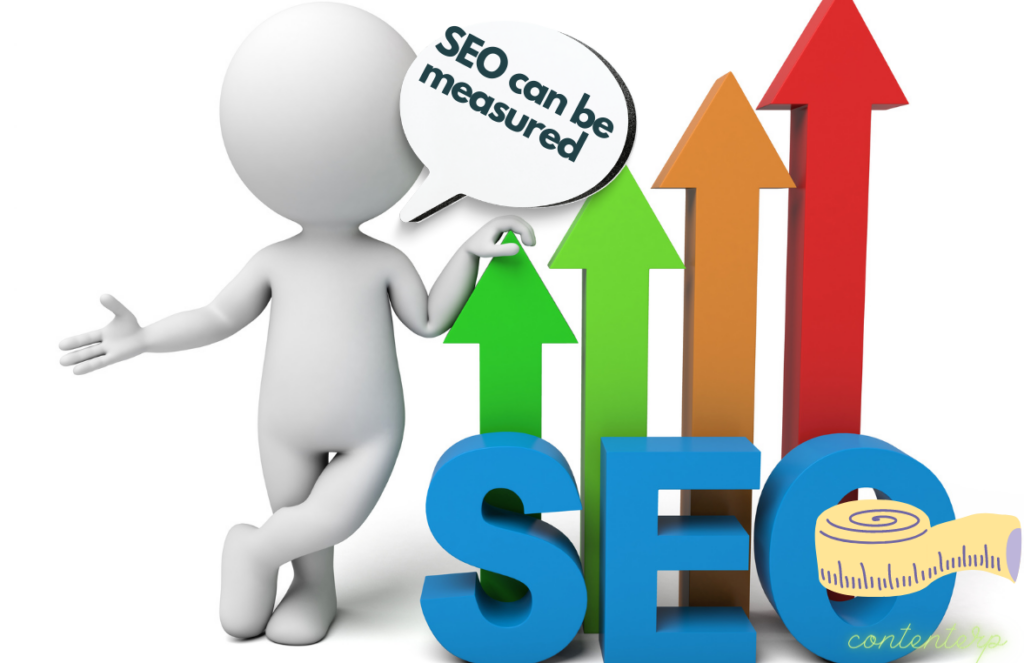
Leads and sales are a good way to measure your SEO’s effectiveness at generating new business. If you see an increase in leads and sales, that’s a good sign that your SEO is working.
Conversions are a measure of how many of your website visitors are taking the desired action, such as signing up for a newsletter or making a purchase. If your conversion rate is increasing, your SEO effectively drives targeted traffic to your website.
Do SEO Yourself or Hire an SEO Company?
There are pros and cons to doing SEO yourself or hiring a company to do it for you. If you have the time and resources to invest in learning SEO and keeping up with the latest trends, then doing it yourself can be a great option.
However, if you don’t have the time or are not confident in your ability to do it effectively, then hiring a company to do it for you can be a good investment. There are a lot of good SEO companies out there that can help you get results, so it’s important to do your research and find one that you feel confident in.
How much time should you spend on SEO?
There is no one-size-fits-all answer to this question, as the amount you should spend on SEO will vary depending on your business goals and the competitive landscape. However, as a general rule, you should allocate at least 3-5% of your marketing budget to SEO. This will ensure you have enough resources to invest in key areas such as keyword research, content creation, and link building.
Conclusion
Your business needs to have a successful SEO strategy to get ahead on search engines. The growth of your business depends on how many people are aware of your product and service, and Search Engine Optimization is one of the best ways to do that.
Brands that invest in SEO can build credibility and trust with audiences, making it a pivotal part of a digital marketing strategy.

